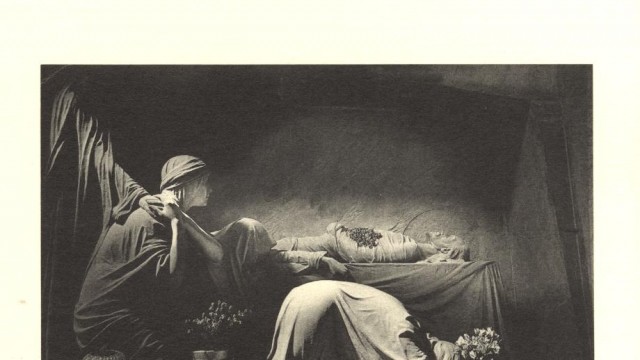I’m still not sure that I’ve spent enough time on Joy Division’s wavelength to be completely in sync, but even at this relatively embryonic stage of fandom, I’m calling Closer the definitely superior sibling. It’s tighter and somehow simultaneously more immediate and more emotionally harrowing than Unknown Pleasures, and I like it a great deal.
Really, I think it’s the production that’s winning me over. The comparison between Unknown Pleasures‘s cavernous pitch-darkness and Closer‘s punchy, in-your-face instrumentals is stark; the instruments, the vocals, they just pop here in a way that those on Unknown Pleasures just, by design, didn’t. Listening to them back to back, the feeling is akin to having a harsh, fluorescent light flipped on after having listened to the band play in a dark space of uncertain dimensions: the room is smaller than you thought, and the band looks a lot uglier, too. If that’s a critique, it’s not. I like the lights-on approach, even if it means being confronted with some of the hard looks and sounds of the group. Closer is an album much less likely to engulf you than Unknown Pleasures, and in the absence of that twisted kind of cuddliness, we’re just left with the striking realities of the emotions on display.
And then there’s the elephant in the room. Obviously, Ian Curtis’s eventual suicide, mere months before the release of the record, looms heavily over the music here, and now, that aspect of the Joy Division mythology is so ingrained that it’s impossible not to feel the temptation to read the album as a suicide note. I’d be remiss in mentioning just how dirge-like everything here sounds. This is an album with an overbearing sense of mortality and, well, closure. I’d like to think that it would feel similarly regardless of whether Curtis were still with us, but of course that’s not on the table right now. As it is, however, I’m convinced that an artist’s work is not a sufficient context for understanding his life, especially the end of it, and doing so seems to play into the romanticized morbidity that was discussed in the comments for Unknown Pleasures. That tension between biography and art is one that’s inseparable from the experience of the album now, and one I still can’t reconcile.
What I can reconcile myself to is the fact that this album’s great and knotty and raw just like the best of post-punk should be. I’m not thinking about Echo and the Bunnymen now, that’s for sure.

